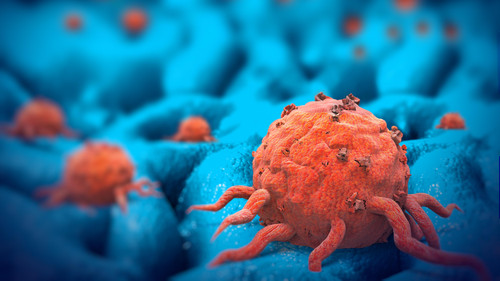
Researchers uncover a potential strategy to target and inhibit the androgen receptor in aggressive prostate cancer by exploiting protein droplets.
An international research team, including experts from IRB Barcelona, Max Planck Institute for Molecular Genetics, and BC Cancer, discovered a potential method to target the androgen receptor, a significant factor in prostate cancer, through its tendency to form droplets known as condensates. These findings, detailed in Nature Structural & Molecular Biology, laid the groundwork for Nuage Therapeutics S.L., a biotech venture aiming to develop treatments targeting these challenging proteins.
By exploring the intrinsically disordered proteins’ tendency to form condensates, the team identified sequences essential for phase separation, which also play a role in gene activation. Leveraging this insight, they developed an experimental inhibitor that showed a tenfold increase in efficacy against aggressive prostate cancer in cell and mouse models. While these results are promising, further research is needed to translate them into viable therapies.
The team hopes their discoveries will pave the way to target other transcription factors in various diseases. This work forms the basis for Nuage Therapeutics’ pursuit of new treatments for complex diseases by targeting proteins undergoing biomolecular condensation. “The rationale we have followed to optimise an androgen receptor inhibitor could be exploited to inhibit other transcription factors, thus opening up new opportunities to address unmet medical needs,” says Dr. Xavier Salvatella ICREA research professor at the IRB Barcelona.
- SEO Powered Content & PR Distribution. Get Amplified Today.
- PlatoData.Network Vertical Generative Ai. Empower Yourself. Access Here.
- PlatoAiStream. Web3 Intelligence. Knowledge Amplified. Access Here.
- PlatoESG. Carbon, CleanTech, Energy, Environment, Solar, Waste Management. Access Here.
- PlatoHealth. Biotech and Clinical Trials Intelligence. Access Here.
- Source: https://european-biotechnology.com/up-to-date/latest-news/news/unveiling-prostate-cancers-achilles-heel.html
